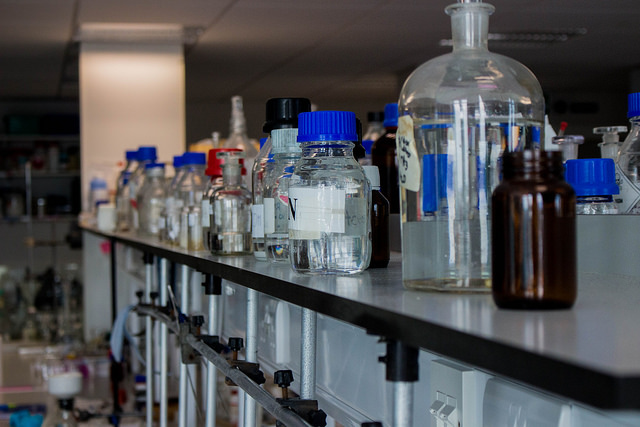Staff members in the School of Chemistry have expressed frustration at the recent cancellation of in-person laboratory practicals, alleging that Trinity is out of touch with the reality of the situation.
In March, this newspaper reported that Trinity had introduced new rules mandating in-person activities be a maximum of one hour and 45 minutes in length in order to prevent people working in the same room from being labelled as “close contacts” by the HSE.
This led to the cancellation of all timetabled labs for chemical sciences students, after the School of Chemistry decided that the timeframe was too short for students to complete their assigned experiments.
One School of Chemistry staff member, speaking on the condition of anonymity because of concerns that staff who spoke about the new rules could face repercussions, described the events as “extremely disappointing” and called the change to a one hour and 45 minute limit “arbitrary”.
“The School of Chemistry put enormous effort [in] to design and deliver safe face-to-face teaching this year, and we had succeeded in having perfectly functioning and safe labs”, they said.
The staff member was therefore left confused when the college changed its rules, adding: “We worked through two waves and had zero cases.”
They believed that the move is part of a larger pattern of College decisions throughout the pandemic, taken by people “who have no clue about what happens at the School level”, and “ignoring what staff and students have to say”, about the consequences for learning.
“Our Director of Teaching and Learning, our Head of School, and our COVID Safety Committee had a long [and unsuccessful] battle with College.”
The source also pointed out the extreme effort that laboratory workers put in to ensure that learning environments would be safe. “The teaching and technical staff have worked 10 times longer and harder this year, and the College has zero understanding or appreciation whatsoever.”
Another staff member within the school, who similarly asked for anonymity based on concerns that people who spoke out could face repercussions, also expressed anger at the situation.
“The front of College decided to change things half-way through the semester, with no consultation and no visits to see how safe the laboratories were.”
“I do not believe the decision was made [based] on infection control guidelines, [but rather] the bad PR that would have resulted,” the source continued.
“It has been really frustrating as the school tried so hard to enable as much face-to-face teaching as was safe.”
The source also commented on the high-tech ventilation systems present in all teaching labs, pointing out the added safety they provide. “Ventilation is really important in the spread of COVID, but the fume hoods in the labs change the air so frequently it is like being outside.”
Whatever the logic behind College’s reversal, the source said that “there was no conversation with the people on the ground.”
Another question raised by staff interviewed for this piece was why fourth-year students continue to have in-person labs of more than one hour and 45 minutes in length if the college has deemed them unsafe.
Fourth-year chemistry class representative Grace Butler confirmed to The University Times that their in-person experimental work continues in “pod systems”, which go on for longer than an hour and 45 minutes, in accordance with HSE guidelines.
Trinity did not comment on the staff members’ complaints about the coronavirus guidelines.







